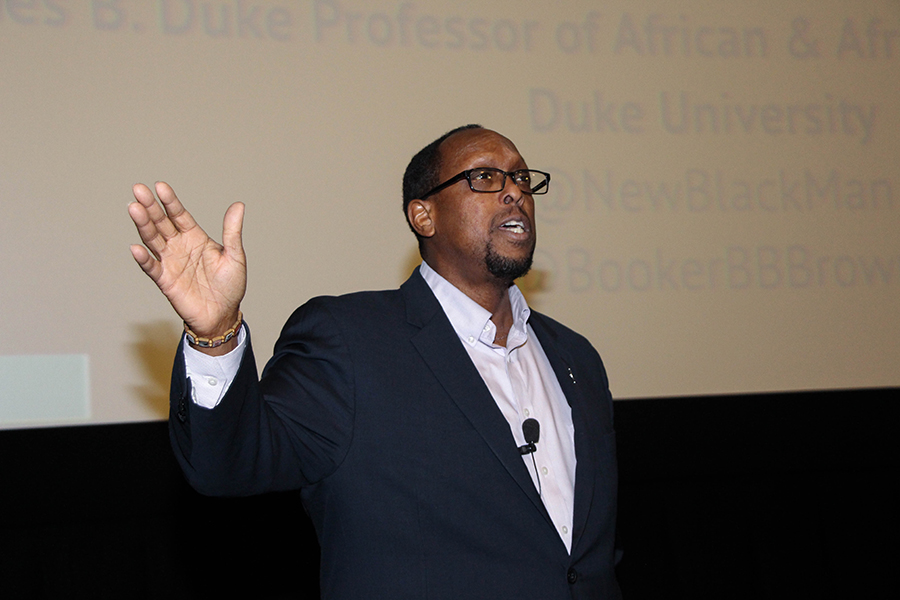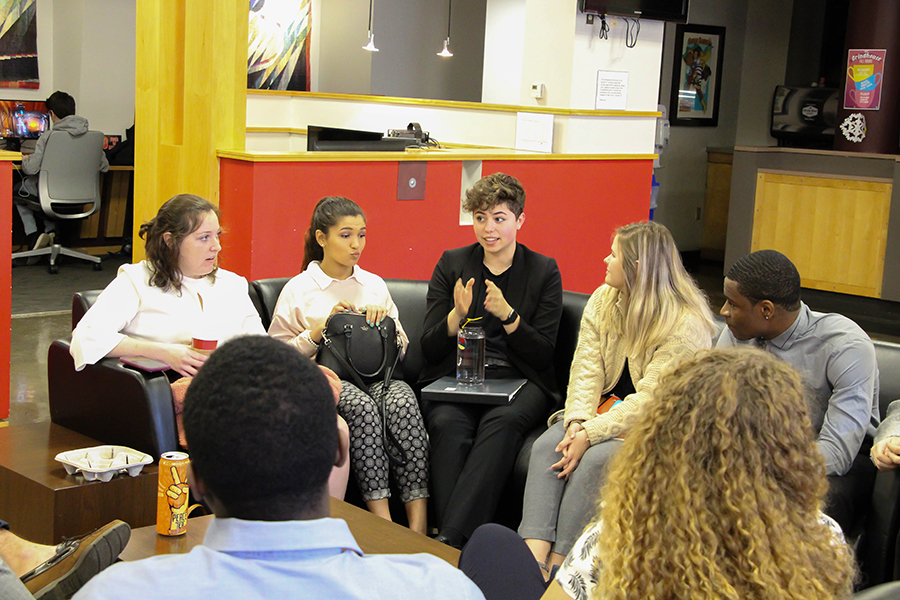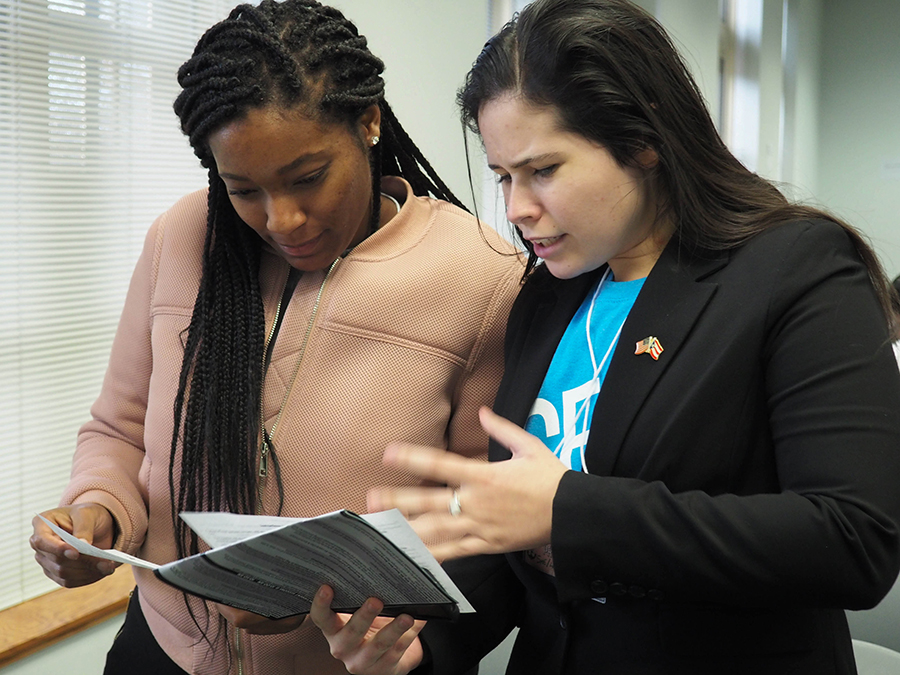MLS encourages students to step outside the echo chamber
How would the Civil Rights Movement of the 1960s be different if Martin Luther King Jr. and Malcolm X had Galaxy Notes?

Leadership Summit on Jan. 26, 2019. Photo/ Valeria Rivadeneira
Dr. Mark Anthony Neal posed this question in his Saturday keynote address at the Multicultural Leader Summit. Neal, the James B. Duke Professor of African and African American studies at Duke University, cited the impact of social media, particularly Twitter, in starting national conversations about modern civil rights issues. The question prompted conference attendees to stop and think for a moment: how would modern technology and social media have changed the discourse of the past? And what does our technology mean for the present and future of our diverse communities?
This year’s Multicultural Leadership Summit, “Like, Share, Retweet: Conversations Beyond Your Echo Chamber,” sought to answer these questions. Participants explored the ways in which technology impacts both the experiences of specific groups and the intersectional experiences they encounter. In doing this, students were encouraged to look outside their circles of like-minded people and challenge their perspectives in a combination of presentations, breakout sessions, and small group reflections.
“FSU is a diverse campus, but a lot of people tend to stay in their same programs with people like them,” said Lily Guerrero, the hospitality student coordinator for the two-day conference. “Because of this, we tried hard to ensure that this year’s small groups included people with diverse identities to encourage them to step outside their comfort zones.”

Photo/ Valeria Rivadeneira
In addition to encouraging personal connections with people of different backgrounds, the conference offered numerous breakout sessions, each focusing on a specific topic related to the intersection of social media, diversity, and discourse. Each session had a unique approach and question, which prompted discussions that rarely occur face-to-face and encouraged participants to both listen to others and form their own opinions.
In one session, participants discussed instances of ableism online and how to make content more accessible. Right across the hall, another group examined what the group coined “faux-versity” in media – that is, the tendency of media producers to create a false sense of diversity by inserting people of other races into white narratives rather than writing new narratives that reflect their cultures and backgrounds. Yet another session discussed Black Twitter and how its sense of community empowers many black individuals to embrace themselves and their identities.
The role of social media in our discourse was a central theme of the conference’s programming. During “Cancelled! The Game Show,” led by Alexandria Lindsay, a Social Justice Peer Educator at the Center for Leadership & Social Change, participants were presented with several celebrities who have done or said things widely considered on the Internet to be offensive in some way. Participants would vote on whether or not the celebrity was “cancelled” for what they had done – that is, whether they should be less respected or tolerated due to their words or actions. After the "game show," the group discussed questions such as the criteria for cancelling people, the impact of socialization, and who is responsible for educating those who may say or do insensitive things out of ignorance.

during a featured presentation on tribalism.
While each session explored a different question, all of them promoted in-depth, engaging, and enlightening discussions about the impact of technology and social media on cross-cultural interaction.
While encouraging people to learn about other cultures and step outside their comfort zones, MLS also offered some students a greater understanding of their own backgrounds and cultures.
Miles Feacher, a Social Change Peer Educator who attended and presented at the conference, explained how meaningful it was to him to hear Neal talk in his keynote address about the common practice in black culture of speaking in code to one another.
“As a person who grew up identifying as black, it’s something I’ve always known, but I’ve never known the academic terms for it,” Feacher said. “It was really interesting to see black culture intersect with academia.”
Through gaining a deeper understanding of both their own cultures and others, participants in this year’s Multicultural Leadership Summit left the conference better equipped to handle multicultural dialogue in a productive and respectful way.
Amber Chu, a conference participant, noted how many cultures and ethnicities exist within the FSU community.
“I learned that I need to be more aware of using inclusive language and understanding different cultures and that I need to remember that something I believe or experience may not apply to someone else,” she said. “The key is being conscious of that.”
— Kendall McDonald

